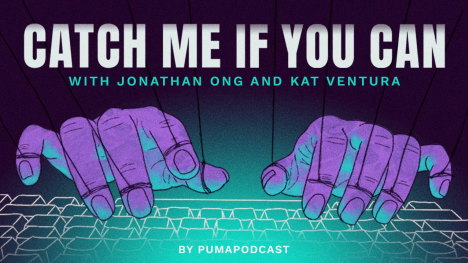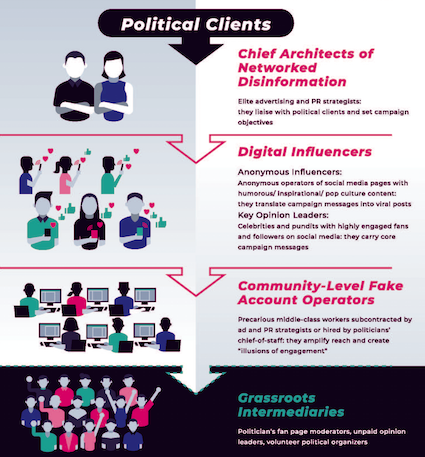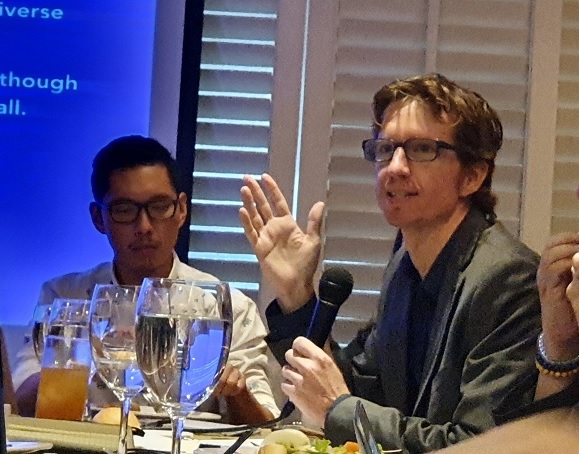As the country continues to battle against disinformation, scholar Jonathan Ong and journalist Kat Ventura took a deep dive into the world of trolls through a podcast exposing the shadowy digital operations of influencers and disinformation actors in the country.
Returning for a second season, ‘Catch Me If You Can” features meme factory owners, pseudonymous influencers, beki campaign organizers and even people behind X-rated “alter accounts” to blow the whistle on the obscure world of digital influence operations in the Philippines.
In the first season, also produced by the award-winning production company PumaPodcast, co-hosts Ong and Ventura discussed campaign strategies and troll farm operations through stories told by actual paid political trolls, influencers and top-level strategists. It was released in April, two weeks prior to the May 2022 polls and eventually climbed to the Top 6 of the Philippine podcast chart.
Last Friday, PumaPodcast released the first episode of the new season where Ong and Ventura tackled the role that “memes” play in political campaigns, especially in the recently-concluded elections. They interviewed a meme factory owner disguised as Mike who was not part of the campaign team of any of the candidates. He was commissioned by a “middleman” to create attack memes against then-presidential candidate Ferdinand Marcos, Jr. and his running mate Sara Duterte-Carpio.
Ong, also a professor based in the United States, explained the nature and definition of memes that are not limited to their function in political communication and information warfare but also in creative expression and cultural transmission.
What the co-hosts found intriguing about Mike’s meme factory is the kind of memes it produced showcasing “recontextualized media” in a form of “video rebuttals.”
“Recontextualized media is, you take an image or an audio clip or a video clip, you take it out of its original context and reframe it for an entirely different purpose,” Ong explained in the podcast, quoting the official Harvard definition of the term.
He noted, however, that in the case of Mike’s memes, there was no intention to mislead. Rather, they offered a new narrative and pointed out contradictions in character, speech, performance and behavior. One meme discussed is that of Duterte-Carpio looking prim and proper in an official campaign video with Marcos juxtaposed with a clip of her punching a sheriff.
Both hosts also found it interesting that although the memes were aimed at attacking Marcos and Duterte-Carpio, there were lines that Mike’s team would seemingly not cross.
Despite disagreeing with the official campaign of his preferred candidate Leni Robredo, which was centered on “radical love,” the anonymous meme factory owner explained that his team set limits on what to use to attack the Marcos-Duterte-Carpio tandem, keeping in mind to exclude the politicians’ children.
Ventura noted that this was an effort to retain Filipino values of respecting family and not make a victim of the Marcoses whose campaign already heavily relied on historical distortion.
“That’s something super crucial for progressive movements to think about. That the kinds of stories we’re trying to tell and the narratives we’re trying to share should not contradict the values of our movement,” Ong pointed out, criticizing the “elitist” narratives forwarded by some Robredo supporters.
Understanding the enemy
“We want our podcast to discuss ethics – or the lack of it – in creative industries, media, and politics,” said Ventura in a press release.
Since the podcast depends highly on narratives shared by “whistleblowers”, Ventura said they took utmost care in its production and in protecting their sources.
“What we’re aiming for is more workers to blow the whistle on industries and organizations that make disinformation their profitable business,” she explained.
For Ong, the purpose of the podcast is to challenge the public’s notion of who trolls are.
“For us to fight disinformation properly, we first need to understand in-depth who the enemy is,” he said in the same press release.
Ong explained that the podcast paints a picture of the humans behind disinformation campaigns which contradicts the common notion that trolls are “unthinking copy-paste operators”.
The sources interviewed in the show are college degree holders from prestigious universities recruited for well-paying side gigs.
“Each episode has been a story of easy complicity with a powerful takeaway: ‘this could have been you!’,” he added.
Apart from exposing the shadowy corners of the internet, the new season also makes space for hope and humor as it aims to discuss in its upcoming episodes the “attention-hacking” achievements of gay influencers who forwarded Lesbian, Gay, Bisexual, Transgender, and Queer (LGBTQ) advocacies in the last election.
This podcast, according to Ong, is a great educational resource for people who want to learn more about digital literacy and political communication.
“As an educator, I’m encouraged by the popularity of the podcast among college students and young professionals. This is a show that educates young Pinoys, ‘Watch out, these are the steps how you yourself will be recruited to troll operations!’” he explained.




